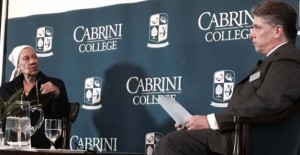Cabrini College lays claim to a beautiful campus forested with trees both young and old, a bustling wildlife presence, and students who call these grounds home. On Friday, April 17th, The Wolfington Center sponsored a conference to engage concerned citizens in the practice of entering into a healthy relationship with that natural world which men and women everywhere call home. Dr. John Burke, Cabrini College Professor of Religious Studies, organized the day-long event with a series of speakers, presenters, and dialogue amongst community members.
More than fifty attendees were treated to a thought-provoking piece by Dr. Burke to begin the day. The conversation concentrated on the relationship between the Catholic faith and environmental issues in our modern world. He reviewed the different themes of Catholic engagement with these issues ranging from the work of Cardinal Turkson to different encyclicals that display the varying facets of how the Church has mostly been on the stewardship and anthropocentric side of the environmental relationship. Dr. Burke then projected the steps which these people of faith ought to take in order for the concept of “green discipleship” to become genuine practice. His challenge to the Catholic Church was to view Catholic Social Teaching through an environmental lens as inhabitants in relationship with the natural world around it, rather than in a dominating relationship over the world.
Catholic perspectives were not the only ones heard throughout the day. Renowned Rabbi Arthur Waskow sparked the room with dialogue about the earth-oriented theology of Hebrew Scriptures. Rabbi Waskow spoke of how we need to change what we name ideas, both the idea of global warming and how we understand the name of God. Rabbi Waskow suggests that we start saying that we are scorching the earth, and recommends we start using the term global scorching in order to get across the extremity of the situation. He then exhorted us to think of the name of God as the breath of life, the breath that all living things breathe and that we all breathe reciprocally from each organism to the next: the trees breathe in what we breathe out, and we breathe in what the trees breathe out. Reconsidering our understanding of the name of God, will make us reconsider our relationship to our breath, and thus what we put out into the world to breathe.
Continuing with the theme of applying green practices to all aspects of our world, the conference broke into small groups with three presentations. Dr. Carrie Nielsen, Cabrini College associate professor of Biology, shared the science of climate change is making people around the world sick. Global warming (or scorching if we abide by Rabbi Waskows suggestion) often is associated with nature and the harm we are doing to nature, or the ice caps, or the polar bears at the ice caps. However, Dr. Nielsen shows that global warming has killed, and will continue to kill people until something is done. Dr. Nielsen also gave groups time to reflect and come up with ideas to help change our stereotypical understanding of global warming to add a human element.
Chuck Marshall, joining from Central Baptist Church, led his group through the history of his church becoming a carbon neutral building and institution, the processes they went through to get to that level, and suggestions of what they could do further, and what other buildings and institutes could do in order to get to neutral emissions.
Finally, as a continuation of his larger presentation, Rabbi Arthur Waskow spoke about the application of Hebrew Scriptures in today’s ecological world, and specifically how we can allocate our money responsibly, in order to help maintain a more ecologically friendly world.
Through interfaith dialogue and a shared passion to embody genuine care for God’s creation, this gathering offered a deepened the sense of responsibility for this beautiful campus which so many people call home. This small gathering for Cabrini College is one big step forward to educating the hearts of the world around it. For as St. Francis of Assisi says, “A single sunbeam is enough to drive away many shadows.”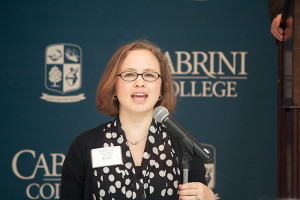
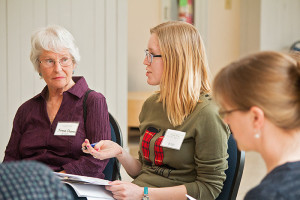
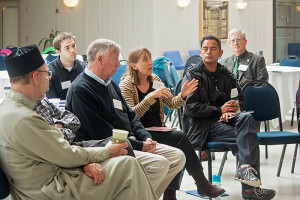
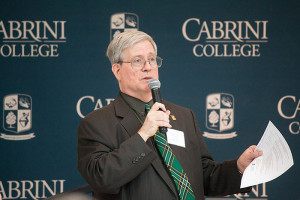
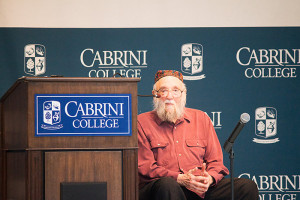
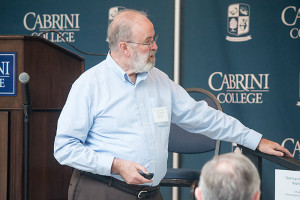
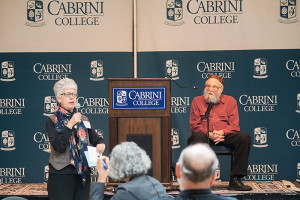
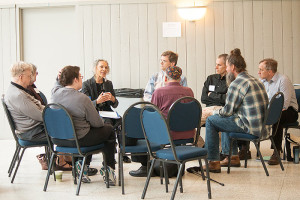
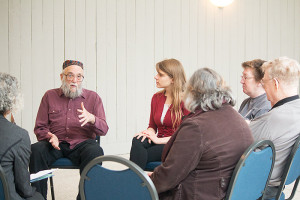

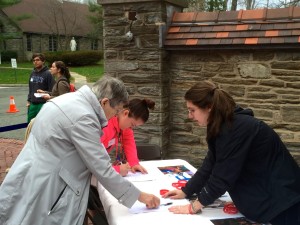
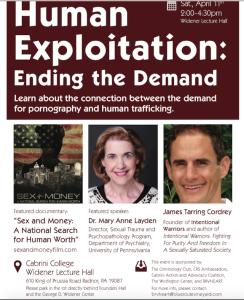 Learn about the connection between the demand for pornography and human trafficking.
Learn about the connection between the demand for pornography and human trafficking.